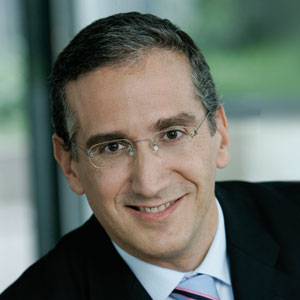
After more than 40 years of operation, DTVE is closing its doors and our website will no longer be updated daily. Thank you for all of your support.
Cable chiefs mull mobile future at Cable Congress
Cable CEOs debated the future of convergence between their own networks and mobile services at Cable Congress in Amsterdam this morning.
Leading executives said that cable operators are becoming mobile companies as consumption of content migrates to mobile.
Speaking on the opening panel session, Manuel Cubero, chief operating officer, Kabel Deutschland, said that the combination of Vodafone and KDG was a “perfect fit”, but added that his company had already begun deploying WiFi last year. “The logic for this [fixed mobile] marriage is becoming greater,” he said.
Asked whether KDG would adopt the Vodafone brand, Cubero declined to answer directly but said that in principal Vodafone has a” fantastic brand” worldwide with 22 million customers in Germany. “It’s obvious it will help us grow event faster,” he said.
Cubero said that the ability to bundle services with “impeccable” customer service led to churn falling and that customers were not put off by taking a large number of services from a single supplier with a large overall bill.
Carsten Dilling, CEO, TDC, said his company had decided to combine cable unit YouSee with mobile last year. “Content is still very local but as we integrate the cableco we benefit from strong content deals from that side and can apply those content deals to the TDC IPTV space,” he said.
“Cable shouldn’t underestimate how fast consumers will expect content to move across all devices and all screens and that is an argument for integration,” said Dilling.
“You have to come up with similar stuff on smart TV, tablets and mobile phones.”
Sounding a more cautious note, Mike Fries, president and CEO, Liberty Global, said Liberty Global faced a mix of competitive situations but that its strength was its broadband network. He said Liberty didn’t see “a lot of heat in any market”.
Fries said he still saw the benefit of investing in a fixed network. “A fixed line into the home with multiple smartphones, laptops and set-tops is the only way to go for any family. It’s all you can eat. If you go outside the home you are automatically paying your mobile operator huge bills,” he said.
Fries said that only 15% of consumption in the US was currently online and in Europe the number is only 5%. “Our job is to get it right – filling the functionality gap that Netflix and others have exposed, but it’s not hard to do,” he said.
Fries said that cable it is “inevitable” that cable will close the gap as it deploys advanced TV services.
Fries said European cable is actually outperfoming US cable on most metrics except ARPU. He said the telecom industry was in a different place. “Consolidation is inevitable. We shouldn’t be worried about that. We want healthy competitors and not irrational competitors that make stupid decisions that we end up paying for,” he said.
Fries said the European Commission is doing “a good job” of setting the competitive framework. “I think they’re on it.
Where we struggle is at the national level, with national regulators. Brussels is in good shape in my view.”



